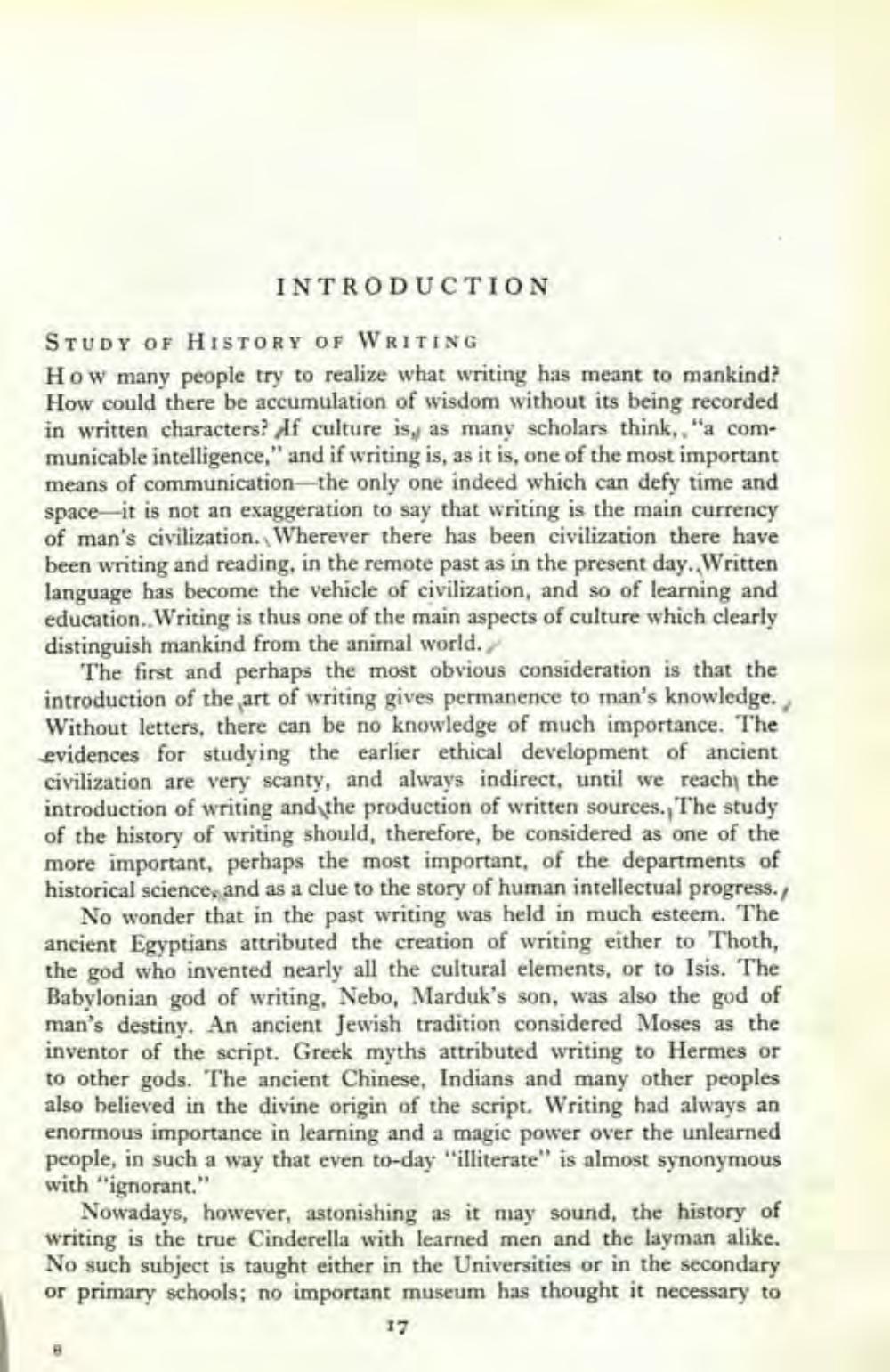________________
INTRODUCTION
STUDY OF HISTORY OF WRITING
How many people try to realize what writing has meant to mankind? How could there be accumulation of wisdom without its being recorded in written characters? If culture is, as many scholars think,, "a communicable intelligence," and if writing is, as it is, one of the most important means of communication the only one indeed which can defy time and space it is not an exaggeration to say that writing is the main currency of man's civilization. Wherever there has been civilization there have been writing and reading, in the remote past as in the present day. Written language has become the vehicle of civilization, and so of learning and education.. Writing is thus one of the main aspects of culture which clearly distinguish mankind from the animal world.
The first and perhaps the most obvious consideration is that the introduction of the art of writing gives permanence to man's knowledge. Without letters, there can be no knowledge of much importance. The evidences for studying the earlier ethical development of ancient civilization are very scanty, and always indirect, until we reach the introduction of writing and the production of written sources. The study of the history of writing should, therefore, be considered as one of the more important, perhaps the most important, of the departments of historical science, and as a clue to the story of human intellectual progress./ No wonder that in the past writing was held in much esteem. The ancient Egyptians attributed the creation of writing either to Thoth, the god who invented nearly all the cultural elements, or to Isis. The Babylonian god of writing, Nebo, Marduk's son, was also the god of man's destiny. An ancient Jewish tradition considered Moses as the inventor of the script. Greek myths attributed writing to Hermes or to other gods. The ancient Chinese, Indians and many other peoples also believed in the divine origin of the script. Writing had always an enormous importance in learning and a magic power over the unlearned people, in such a way that even to-day "illiterate" is almost synonymous with "ignorant."
Nowadays, however, astonishing as it may sound, the history of writing is the true Cinderella with learned men and the layman alike. No such subject is taught either in the Universities or in the secondary or primary schools; no important museum has thought it necessary to
17




